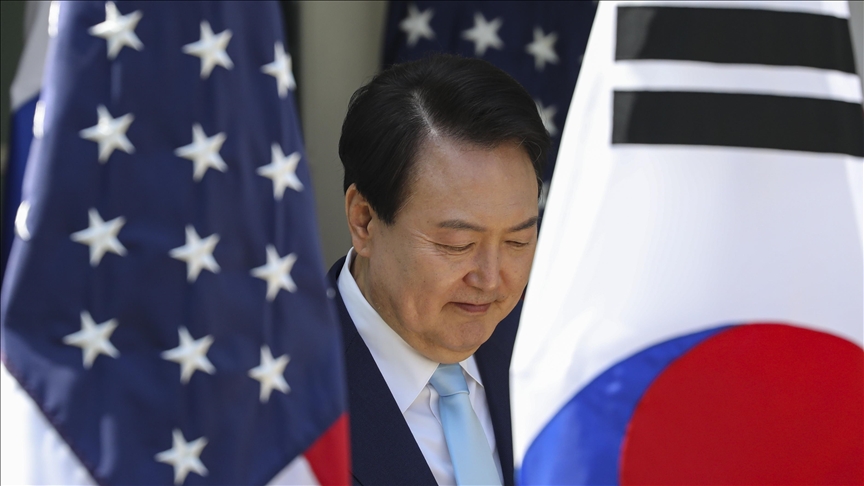1st US nuclear-capable submarine since 1981 makes port call in South Korea
US official tells nuclear group meeting with Seoul that nuclear-capable submarine is visiting Busan port

ISTANBUL / ISLAMABAD, Pakistan
For the first time in over four decades, a nuclear-capable US Navy submarine made a port call in South Korea on Tuesday.
Kurt Campbell, US National Security Council coordinator for Indo-Pacific affairs, broke the news about the port call in the southern port of Busan during the first Nuclear Consultative Group (NCG) meeting between Seoul and Washington.
"As we speak, an American nuclear submarine is making port in Busan today," Campbell, told the meeting, the Seoul-based Yonhap News reported.
Upon recent media reports that the US could soon deploy nuclear-capable submarines on the Korean Peninsula, North Korea released a statement last week opposing the move.
Noting that this would be the first time US strategic nuclear weapons appear on the Korean Peninsula since 1981, Pyongyang accused Washington of the "most undisguised nuclear blackmail."
Pyongyang had called the then-unconfirmed move a "provocative military action" and said it "clearly proves that the situation of the Korean peninsula is coming closer to the threshold of nuclear conflict."
First nuclear group meeting
Seoul and Washington Tuesday their first joint NCG meeting.
The officials from the two sides discussed the temporary deployment of more nuclear-capable assets to South Korea following an agreement between South Korean President Yoon Suk Yeol and his US counterpart Joe Biden at an April summit to create the NCG.
"If you look at North Korea's recent activities, it appears to have made a decision that it is better to pressure South Korea with nuclear capabilities and get the upper hand on the Korean Peninsula," said South Korean Vice Defense Minister Shin Beom-Chul.
"Deterring North Korea's nuclear capabilities," is the most urgent thing right now, Shin said, pointing to the importance of the NCG meeting.
The latest development came just days after North Korea test-fired a Hwasong-18 solid-fuel intercontinental ballistic missile.
President Yoon also called the gathering of senior security and defense officials an "important starting point" for building strong and effective South Korea-US extended deterrence.
"It will carry out actual efforts to block North Korea's nuclear and missile threats at their source through a South Korea-US alliance upgraded to a new nuclear-based paradigm," presidential spokesperson Lee Do-woon said at a Cabinet meeting.
"The NCG must strengthen extended deterrence credibility to respond thoroughly to North Korea's advancing nuclear and missile threats," he added.
North Korea on Wednesday fired a long-range ballistic missile into waters between the Korean Peninsula and Japan, claiming to have set a new record flight time of 74 minutes and 51 seconds, the longest for a North Korean missile.
The missile came down in what South Korea calls the East Sea and Tokyo calls the Sea of Japan.
Pyongyang has launched 12 missiles this year, including the intercontinental ballistic-class Hwasong-15, Hwasong-17, and Hwasong-18 missiles, as well as its first military spy satellite in May, though this crashed into the Korean Sea.
*Riyaz ul Khaliq contributed to the story.
Anadolu Agency website contains only a portion of the news stories offered to subscribers in the AA News Broadcasting System (HAS), and in summarized form. Please contact us for subscription options.








